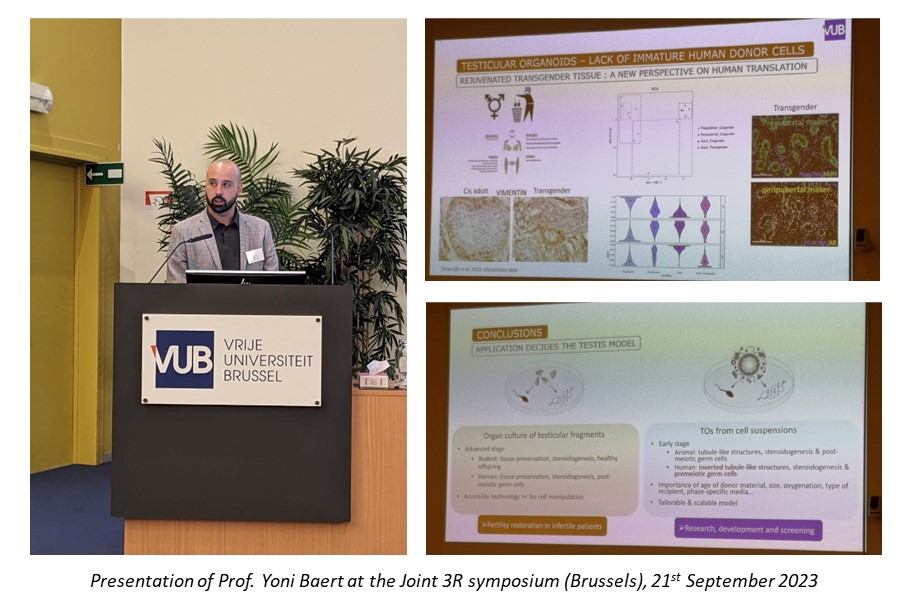Human tissue waste a possible solution for animal-free research on male infertility
In the context of the Joint 3R Symposium which was organised from 19 to 21 September in Brussels, Belgium, Prof. Yoni Baert of the Vrije Universiteit Brussel (VUB) was interviewed about his work on in vitro modelling of the testis.
Infertility rates have increased around the world in recent decades, with male infertility in particular a major problem. Prof. Baert (VUB) is studying the increase in infertility among men. Despite the trend, there is currently no relevant model to allow scientists to carry out in-depth studies outside the body. “Testicular organoids from human medical waste may be a substitute for laboratory animals,” says Baert.
Male fertility is noticeably declining around the world. “Sperm production has fallen by almost half in the last 50 years, so something is clearly wrong,” says Baert. “There is indirect evidence pointing to the negative impact of things we ingest through the air and food or that our skin comes into contact with. Those substances likely interfere with the normal functioning of the testes. In addition, there are many causes that aren’t yet known. So there is an urgent need for a study model for the testes, for basic research on both the functioning of the reproductive system and the impact of certain substances. Today, researchers tend to use animal testing for these purposes.”
Baert wants to introduce a model based on organoids. An organoid is an artificial organ made in the lab from stem cells. Until now, Baert has used cells from mice in his research, but he has found a human alternative. “Medical waste, human tissue discarded after surgery, could be an interesting solution,” he says. “Normally that waste is discarded after an operation. But it sometimes comes from very large organs from which we can extract millions, sometimes even billions, of cells that we can perform in vitro research on.” No animal testing would therefore be required and the cells would come from a human source. “I’m committed to animal-free research,” says Baert. “First, it’s not nice to work with laboratory animals, it costs a lot of money and it’s also not always applicable. Indeed, the results of studies carried out on animals are not always relevant to humans. There are so many downsides to it. Sometimes there’s no other way, we have to face that, but if we can avoid it then that should be our goal.
Sources:
- https://press.vub.ac.be/medisch-afval-mogelijks-oplossing-voor-dierproefvrij-onderzoek-naar-mannelijke-onvruchtbaarheid#
- https://www.re-place.be/method/mouse-vitro-spermatogenesis-alginate-based-3d-bioprinted-constructs
- https://www.frontiersin.org/articles/10.3389/fphys.2021.757565/full
- https://iopscience.iop.org/article/10.1088/1758-5090/ab1452


